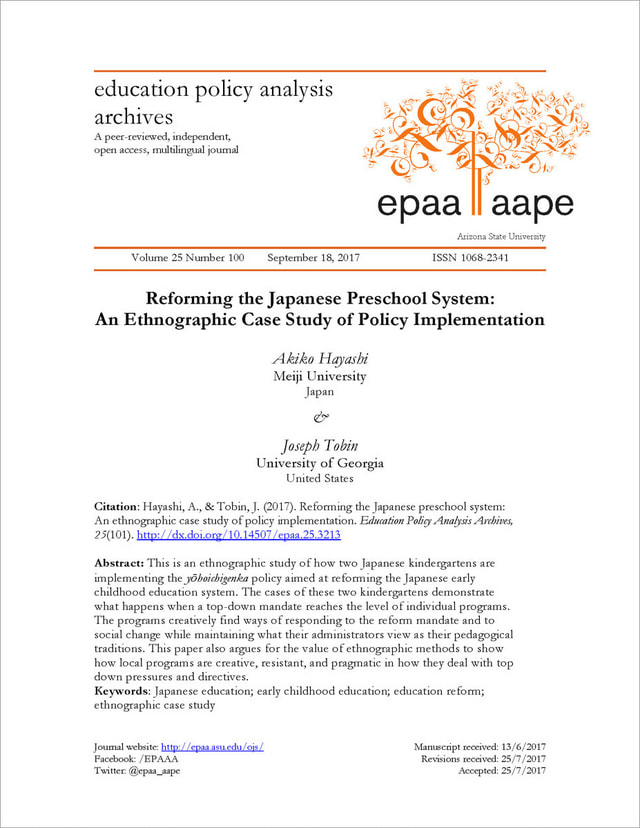幼保一元化 Kindergarten/Daycare Center Synthesis

日本の就学前教育における教育政策である幼保一元化を、幼稚園がどのように受け取り、どのように取り入れているのかを、2つの幼稚園のエスノグラフィから探っています。トップダウンの政策が各幼稚園に到達した際に、どのようなことが起きるのか。2つの幼稚園の事例から、幼稚園は、求められている改定内容と社会変化に各自の方法で対応し、その中に各自の実践的伝統を維持する方法を見出していることがわかりました。また、本論文では、このような各幼稚園が、トップダウンのプレッシャーに対し、ときに抵抗をしつつも、創造性を働かせ、工夫をして、実用的に対応しているさまを描き出すことのできる、エスノグラフィの研究法としての価値も説いています。詳しくは:
This is an ethnographic study of how two Japanese kindergartens are implementing the yōhoichigenka policy for reform the Japanese early childhood education system. The cases of two kindergartens show what happens when a top-down mandate reaches the level of individual programs. These programs creatively find their own ways of responding to the reform mandate and to social change while maintaining what they see as their pedagogical traditions. This paper also argues for the value of ethnographic study to show how local programs are creative, resistant, and pragmatic in how they deal with top down pressures and directives. Details follow: